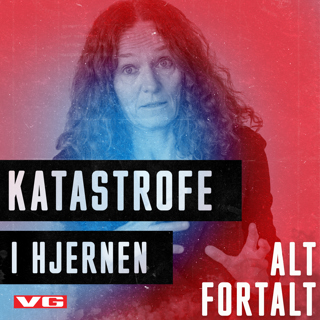
The Invisible Committee, “Now” (Semiotext(e), 2017)
What could the communism of the future be? In Now (Semiotext(e), 2017), The Invisible Committee explores our current crisis by thinking through key critical theory questions, along with specific interventions on French and global politics. On this podcast we hear about The Invisible Committee’s history and their work, contextualizing the specific themes covered by Now. Along with theorizing on new forms of political action, Now critiques institutions, offering thoughts on fragmentation and destitution. The book will be essential reading for anyone interested in responding to the current politics. Learn more about your ad choices. Visit megaphone.fm/adchoices Support our show by becoming a premium member! https://newbooksnetwork.supportingcast.fm/critical-theory
13 Aug 201857min

Simone Wesner, “Artists’ Voices in Cultural Policy: Careers, Myths and the Creative Profession after German Unification” (Palgrave MacMillan, 2018)
Why is the artist’s voice missing from cultural policy? In Artists’ Voices in Cultural Policy: Careers, Myths and the Creative Profession after German Unification (Palgrave Macmillan, 2018), Dr. Simone Wesner, a lecturer in arts management at Birkbeck, University of London, explores this question in the context of post-war and post-unification Germany. The book offers a wealth of detail on the German context, comparing two cultural policy regimes across Saxony, through a longitudinal study of a cohort of artists. Published as part of Palgrave’s New Directions In Cultural Policy Research series, the book offers new theoretical insights to cultural policy, particularly working with the idea of memory to help understand artistic careers as well as national and regional cultural policy. A fascinating read, the book will be of interest across media and cultural studies, as well as for historians, along with anyone interested in understanding the artist’s career and the artists’ role in society. Learn more about your ad choices. Visit megaphone.fm/adchoices Support our show by becoming a premium member! https://newbooksnetwork.supportingcast.fm/critical-theory
3 Aug 201845min

Martin Shuster, “New Television: The Aesthetics and Politics of a Genre” (U Chicago Press, 2017)
How should we understand our new golden age of television? In New Television: The Aesthetics and Politics of a Genre (University of Chicago Press, 2017), Martin Shuster, Director of Judaic Studies and Assistant Professor at Goucher College, interrogates New Television and offers both a defense and critique. Drawing on the work of the late Stanley Cavell, along with others including Hannah Arendt, the book explores the ontology of New Television, the medium of the screen, and the nature of storytelling. New Television has a vast range of examples, including chapters specifically focused on The Wire, Weeds and Justified. Along with detailed aesthetic philosophical discussion of each program, the book ultimately poses the problem of the politics of New Television, questioning the extent to which it offers critical, emancipatory, or regressive contributions to our understanding of modern life. The book is essential reading for anyone watching television, and also those who are not! Learn more about your ad choices. Visit megaphone.fm/adchoices Support our show by becoming a premium member! https://newbooksnetwork.supportingcast.fm/critical-theory
19 Jul 201854min

Ari Heinrich, “Chinese Surplus: Biopolitical Aesthetics and the Medically Commodified Body” (Duke UP, 2018)
Ari Larissa Heinrich’s new book, Chinese Surplus: Biopolitical Aesthetics and the Medically Commodified Body (Duke University Press, 2018), is a fascinating study of representations of the Chinese body in the context of biotechnology. How are bodies reproduced, broken apart, and circulated? And how do the representations of these processes help us understand transnational biopolitics? Heinrich takes up these questions and others in this pathbreaking work, one that will change how readers think about the body in contemporary art and media. Natasha Heller is an Associate Professor in the Department of Religious Studies at the University of Virginia. You can find her on Twitter @nheller or email her at nheller@virginia.edu. Learn more about your ad choices. Visit megaphone.fm/adchoices Support our show by becoming a premium member! https://newbooksnetwork.supportingcast.fm/critical-theory
10 Jul 201847min

Noreen Giffney and Eve Watson, “Clinical Encounters in Sexuality: Psychoanalytic Practice and Queer Theory” (Punctum Books, 2017)
Psychoanalysis is a queer theory. That’s what Tim Dean said, according to Eve Watson in the afterword to Clinical Encounters in Sexuality: Psychoanalytic Practice and Queer Theory (Punctum Books, 2017), a new book that she co-edited with Noreen Giffney. In her interview for this podcast, Watson qualifies that declaration by saying that psychoanalysis isn’t always a queer theory, but it should be. “There are many psychoanalyses.” Queer theory challenges the conventional approach to sexuality that many clinicians absorbed from their training. These clinicians run the risk of imposing outdated and oppressive sexual norms upon their clients. Until the mid-70’s, homosexuality was officially a mental illness and many psychoanalysts continued to try to cure homosexuals of their sexual pathology long after the DSM corrected its culturally determined diagnostic judgment in 1973. Queer theorists argue that this error was not an isolated incident but rather a trend within institutionalized psychoanalysis that continues to limit the effectiveness of psychoanalytic practice today, and in the worst cases, to harm its consumers. In fact, the paragraphs above may give a distorted view of the book which does not pursue an argument but presents a stimulating conversation among queer theorists and clinicians about psychoanalysis, sexuality, gender, identity, and discourse. The conversation can fly high at times, especially for those who are new to this kind of literature, but the variety of contributors speak in many voices and every reader will find something valuable in this book for deepening their psychoanalytic vision. Philip Lance, Ph.D. is a clinical psychologist and psychotherapist with a private practice in Los Angeles. He is candidate at The Psychoanalytic Center of California. He can be reached at PhilipJLance@gmail.com Learn more about your ad choices. Visit megaphone.fm/adchoices Support our show by becoming a premium member! https://newbooksnetwork.supportingcast.fm/critical-theory
28 Jun 201853min

James M. Jasper, “The Emotions of Protests” (U Chicago Press, 2018)
How do emotions affect participation in protests, and in politics more generally? In The Emotions of Protests (University of Chicago Press, 2018), James M. Jasper develops a solid critique to approaches that present political action as strictly rational and emotions as something outside the realm of strategy. Instead, Jasper speaks about feeling-thinking processes to highlight the interaction between strategic thinking and emotions, and the impact they have on participation in politics. Jasper divides emotions in five categories: reflex emotions (what we normally thinking of when we refer to emotions), urges, moods, affective commitments, and moral commitments. Through an extensive elaboration of these five concepts and the different emotions associated with each of them, Jasper builds a solid ground for the development of what he terms a ‘theory of action’. This book will stimulate sociologists and political scientists interested in social movements and protests, as well as anyone attracted by debates about rationality. Felipe G. Santos is a PhD candidate at the Central European University. His research is focused on how activists care for each other and how care practices within social movements mobilize and radicalize heavily aggrieved collectives. Learn more about your ad choices. Visit megaphone.fm/adchoices Support our show by becoming a premium member! https://newbooksnetwork.supportingcast.fm/critical-theory
28 Jun 20181h 7min

Paula Serafini, “Performance Action: The Politics of Art Activism” (Routledge, 2018)
How can art change the world? In Performance Action: The Politics of Art Activism (Routledge, 2018), Paula Serafini, a Research Associate at the University of Leicester’s CAMEo Research Institute for Cultural and Media Economies, explores art activism, looking at the power, potential, and problematics of art for political and social change. The book draws on a wealth of ethnographic material, including the author’s own art activism, to show the complexity as well as the importance of art activism. Moreover, the book offers a major theoretical contribution, fusing work on the public sphere, theories of aesthetics and politics, social movements theory, and theories of emotions and the body, with case studies including the high profile Art Not Oil coalition. The book will be essential reading for anyone interested in art, politics, and the potential to challenge and change our institutions and our politics. Learn more about your ad choices. Visit megaphone.fm/adchoices Support our show by becoming a premium member! https://newbooksnetwork.supportingcast.fm/critical-theory
28 Jun 201839min

Rob Sullivan, “The Geography of the Everyday: Toward an Understanding of the Given” (U Georgia Press, 2017)
How to theorize what goes without saying? In The Geography of the Everyday: Toward an Understanding of the Given (University of Georgia Press, 2017), Rob Sullivan develops a general theory of everydayness as the necessary, if elusive, starting point for social and spatial theorists across disciplines. Proceeding in stepwise fashion, Sullivan builds an account of this concept that scopes over space, place, history, time itself, social and biological reproduction, embodiment, the object world, and the neural and perceptual dimensions of experience, folding high-level theorizing together with an eclectic range of empirical engagements. The book generously synthesizes insights from Erving Goffman, Michel Foucault, Michel de Certeau, Henri Lefebvre, Maurice Merleau-Ponty, Karl Marx, Torsten Hägerstrand, Jane Bennett, and other thinkers on or just off the map of critical geography today. It is an ambitious but conversational text, a committed work of exposition that might dovetail with many a seminar in geographic thought. As Sullivan sees it, materializing our own entwinement with the environment — accepting the complexity of “The TimeSpacePlace Thing” — just might incline future geographers to a richer, more affirmative sense of ethics and politics beyond the hermetic models of selfhood that, on his reading, still have wide appeal, even in an age when the costs of anthropocentrism seem all the more immediate. Peter Ekman teaches in the departments of geography at Sonoma State University and the University of California, Berkeley. He received the Ph.D. from Berkeley in 2016, and is at work on two book projects on the cultural and historical geography of urban America across the long twentieth century. He can be reached at psrekman@berkeley.edu. Learn more about your ad choices. Visit megaphone.fm/adchoices Support our show by becoming a premium member! https://newbooksnetwork.supportingcast.fm/critical-theory
20 Jun 201854min




















